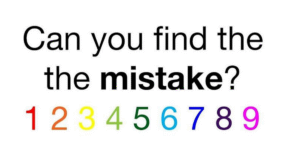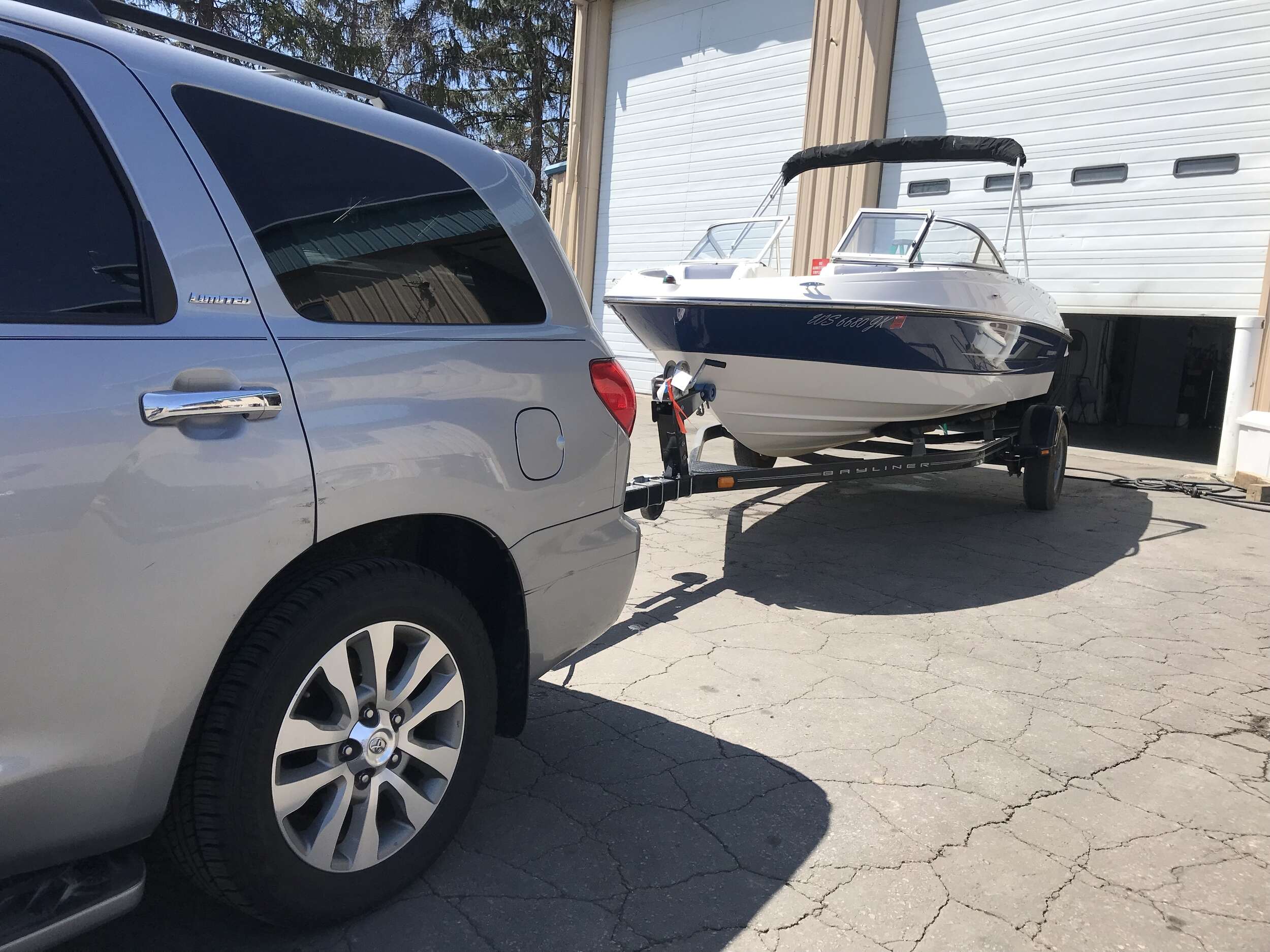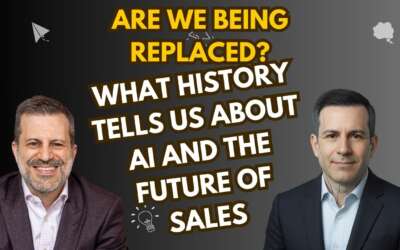As a salesperson, you know way more than you think. It’s also very likely that your buyer knows way less than you think. That combination likely results in you losing to the status quo more than you realize. Also known as the “curse of knowledge“, here’s what I mean.
I’ve been a passenger on a boat quite a few times.
I’ve never driven one.
I’ve certainly never owned one.
We have a home in a community with a small and quiet 3-square-mile lake. The number of piers available for the homeowners is considerably smaller than the number of people who want them. There’s a waiting list. When we moved in, we got on the list. That was 9 years ago!
Three weeks ago, our name came up. The village called to tell us a pier slip is finally available to us. Along with a check, we need to provide the make/model of our boat, its registration, and a number of other details.
Ummm, we don’t have a boat. I can barely spell boat.
We knew this day would come – but we just hadn’t ever bought a boat. Now we had a deadline – get a boat by mid-May, or lose our chance…as there’s 9-year’s worth of people waiting behind us for it if we don’t want it.
Not about to give up our slot, a frantic search for a boat began.
We had zero knowledge of where to look, boat values, what we would want, how to maintain a boat, how to tow a boat, how to launch a boat, and,…oh, did I mention, how to even drive a boat! We had to crash-course on it. Reading. Talking to experts. Watching hours of YouTube videos.
The Three Seller Types
We decided we would buy a small, used boat – a bowrider. (Bowrider? Three weeks ago, I had no idea what that word meant.)
While my wife warned me to do otherwise, thinking we would be taken advantage of if I did, I transparently told each boat salesperson we interacted with that I was completely new to this.
- Salesperson #1: My wife was right. This guy clearly tried to snow us – to get us into more boat than we wanted or needed – to try to entice us to think bigger by overwhelming us with things we need to care about and scare us about the things we would have to give up. He was basically trying to sell me a three-piece suit when I was clear about needing something to wear at lunch at the Olive Garden.
- Salesperson #2: When I would stop him to explain, his facial expressions clearly communicated that he couldn’t believe how ignorant I was about basic boating terminology. It subconsciously made me want to ask fewer questions. So, I didn’t…and I didn’t buy from him.
- Salesperson #3: “This is a boat. It floats.” He would show us a feature. He’d see in my eyes that I didn’t know why I should care about it…so he’d go back and explain it like I was a 3rd grader. He kept catching himself in lingo and would stop and explain. My transparency led to his transparency. He got the sale.
The Curse of Knowledge
Once we, as human beings, have acquired the knowledge of something, we often find it hard to have empathy for those who don’t. Here’s a simple way to think about it. Take the image below, for example.

Are you able to figure out the above question? Once you see it, you can never unsee it…
Ready? The mistake is in the question, not in the numbers. The word “the” is listed twice. We will quickly forget how we struggled to find the mistake, and over time, have an extremely difficult time having empathy for others who don’t immediately see it.
It is said that the buyer is 50-something-percent through their buying journey before they reach out to you. That may be true. When we walked into the dealership, we (thought we) knew what kind of boat we wanted, which one specifically was a fit based on what we thought they had on their lot, and how much we wanted to pay. We were more than 50% of the way through the journey in our own minds. But we were totally ignorant, too.
Don’t allow the concept of buyer self-enablement to cloud the reality – you know more about your solution, and how it does and does not address the desired outcomes of the buyer, than they do.
Remember, you think about your solution and the problems it solves all day. You talk about it. You live it. It’s the curse of knowledge. Your buyer likely is buying your solution or one like it for the first time ever – or at the very least, very seldom. They likely know much less than you do – and much less than you think!
Keep in mind three core mindsets that will draw buyers in, versus subconsciously push them away:
- Think about your new hire training. How much did you know? How were you taught your solution? Start with empathy – imagine that your buyer is, at the very most, where you were when you first started. Teach your prospect in the same way you learned, and assume they know less than you did.
- Meet your buyer where they are, not where you are – Our job, as sales professionals, is to help a buyer predict. What is the best path to achieve the desired outcome, and is that path best achieved through our solution, or another. Credibility is built through empathy and support of the buying journey.
- Be a resource. Salesperson #3 helped us hook the boat to the hitch, gave us a ton of pointers, sat in the boat with us before we left and taught us everything, and provided advice on good videos to watch to drive and maintain the boat long term.
The sale itself is not the end of the relationship – it’s likely the beginning. As the joke acronym says, BOAT stands for Bust Out Another Thousand. In the “as-a-service” economy, keep that in mind. Recognize your curse.

The importance of sales leadership correlates directly with the importance of your sales team to your success. As belts tighten, the impact your sales leaders can have on your success multiplies. I’m here to help – the sales leadership foundations & science programs have caught fire…and I think I know why. Let me know if you’d like to learn more… tcaponi@salesmelon.com, or visit the workshops page here.
“To sell a man something he does not need, or to sell him more than he can afford to buy, is not Salesmanship, it is downright dishonesty.” – Harold Whitehead, 1923, The Business of Selling.
Check out The Sales History Podcast, or following along @saleshistorian on either (or both) Instagram and Twitter.





0 Comments